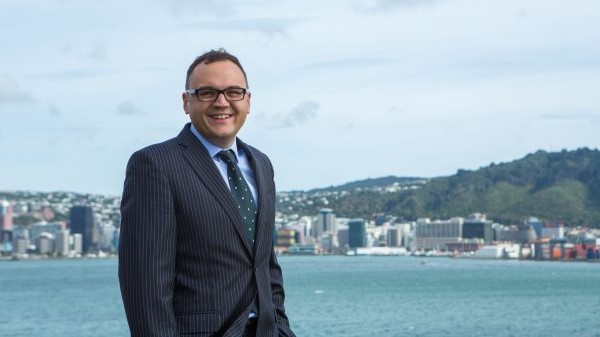
On Wednesday this week I took part in a conference in Wellington, organised by Fuso, covering Partnering for a Sustainable Transport Supply Chain.
This came the day after the Intergovernmental Panel on Climate Change issued a fairly damning report on the world’s progress so far to reduce greenhouse gases.
We cannot avoid the global move to reduce emissions and take climate change action, including switching to alternative energy sources to generate better long term returns and to mitigate the effects of climate change.
The world’s major truck manufacturers have already made substantial investments on electrifying their fleets. Daimler and Volvo have signed an agreement to work together on EV trucks. Volvo’s goal is for half of its truck sales to be electric by 2030.
While long-haul EV trucks require more development, short haul trucks for use in cities are already on the market in New Zealand from a number of manufacturers, including the Fuso Canter.
Transport is responsible for about 20% of New Zealand’s carbon emissions with heavy transport accounting for about six or seven percent of that.
While the existing fleet will be around for some time to come, the industry recognises it must adapt and change to decarbonise. However, New Zealand is primarily a technology taker so it is going to take partnerships, real technology alternatives for the heavy truck fleet, better use of operational data and co-operation between transporters to reduce emissions in our sector.
There are five pillars that have been developed by the International Road Transport Union and at the Fuso conference, I said that Transporting New Zealand believes these are fitting for us to endorse and work towards. We have added a sixth pillar for the New Zealand context.
We propose the New Zealand transport industry, and our partners, sign up to these pillars and form an agreement in 2022, along with a more detailed roadmap and timeline that sets out what we can do to decarbonise here.
The pillars are:
1 Alternative fuels
These will differ in different environments and with different vehicle types. We must support the ongoing development of technology and that all alternatives, including biofuels, e-fuels, synthetics, electric, and hydrogen are needed for various transport uses. We can’t put all our eggs in one basket. The goal is to contribute to reaching climate neutrality by 2050 worldwide.
2 Efficient logistics
We need our industry to operate their vehicles and equipment in the most efficient way. Good design, digital solutions, and eco-trucks mean that there are immediate steps that can assist us in our mission. We could look at using bigger trucks that can carry greater loads so that less trucks would be needed to carry freight around the country.
3 Collective mobility
We must continue to move people to go about their daily lives. New Zealand needs better, more reliable public transport to reduce private car use in cities. Unfortunately, in basically all of our cities we are a long way from a public transport system that tempts people out of their private vehicles in any meaningful way.
4 Efficient vehicles
Improving vehicle energy efficiency, including future vehicle design and further development of new technologies such as hybridisation, low-rolling resistance tyres, waste-heat recovery and light-weight materials, will contribute to efficiency.
5 Eco driving
Sixty-five million buses, coaches and trucks serve businesses and communities around the world each day. The vast majority of those drivers, including in New Zealand, have never been trained for eco-driving. This is a simple and cost-effective measure to reduce fuel consumption and thus emissions.
6 Well designed and integrated infrastructure
We believe decision makers need to consider the perverse outcomes, or unintended consequences, of initiatives such as raised roading platforms, or slower speeds. The ultimate principle that contributes to all the pillars working in harmony is free flowing transport.
Questions remain around costs for climate change mitigation measures, including suggestions for major lifestyle changes to happen rapidly. It is likely that those who can least afford life-cost increases will be significantly under pressure. In New Zealand we are facing high inflation rates and significant increases in the cost of living.
If we work together on shared goals, we can be truly part of a global reduction in emissions by 2050. We need to explore incremental change and focus on a range of solutions – one size will not fit all. But governments are going to have to take on significant costs and burdens of implementation of their policies. And their policies must take a realistic look at the lives of all people.
By Nick Leggett, CEO, Ia Ara Aotearoa Transporting New Zealand





